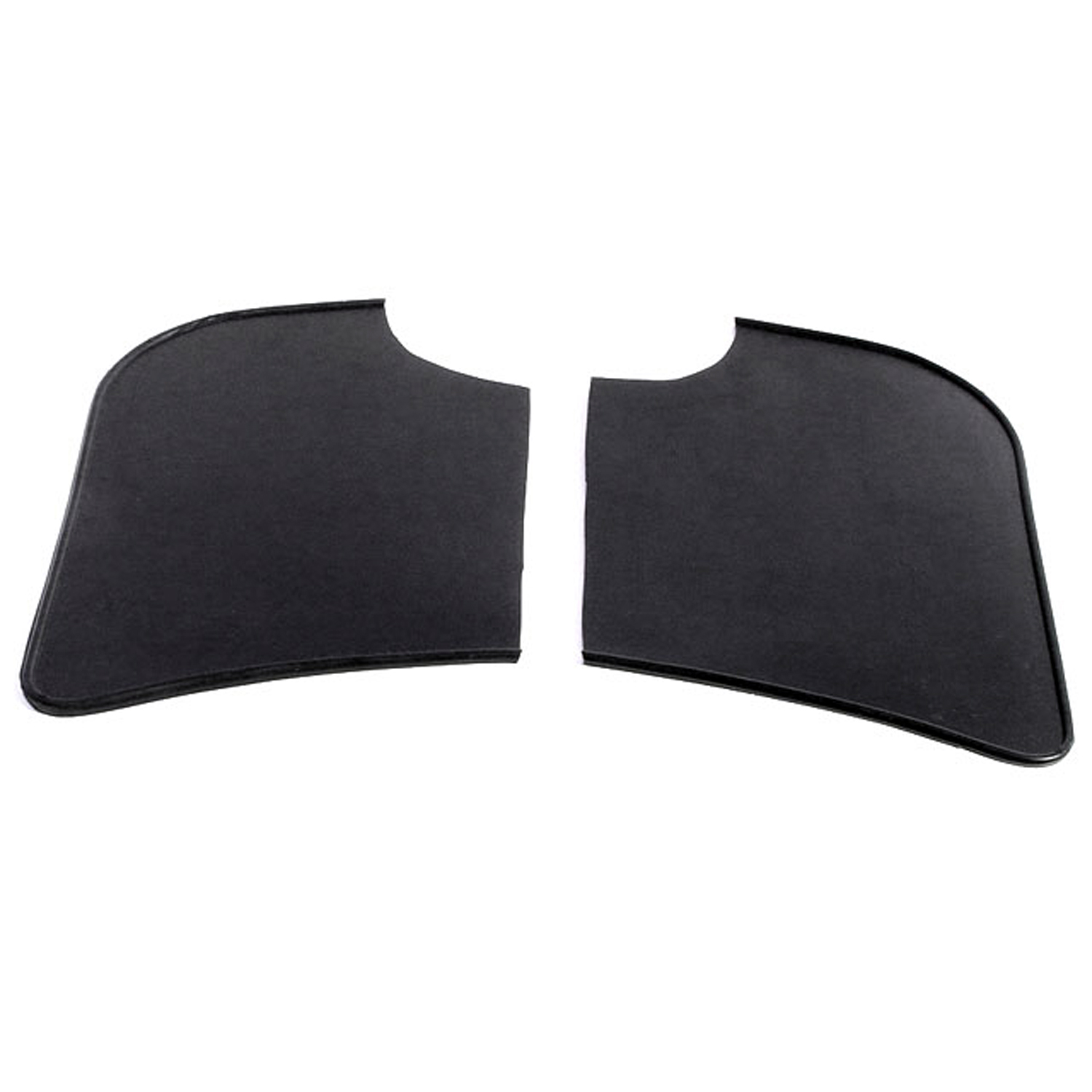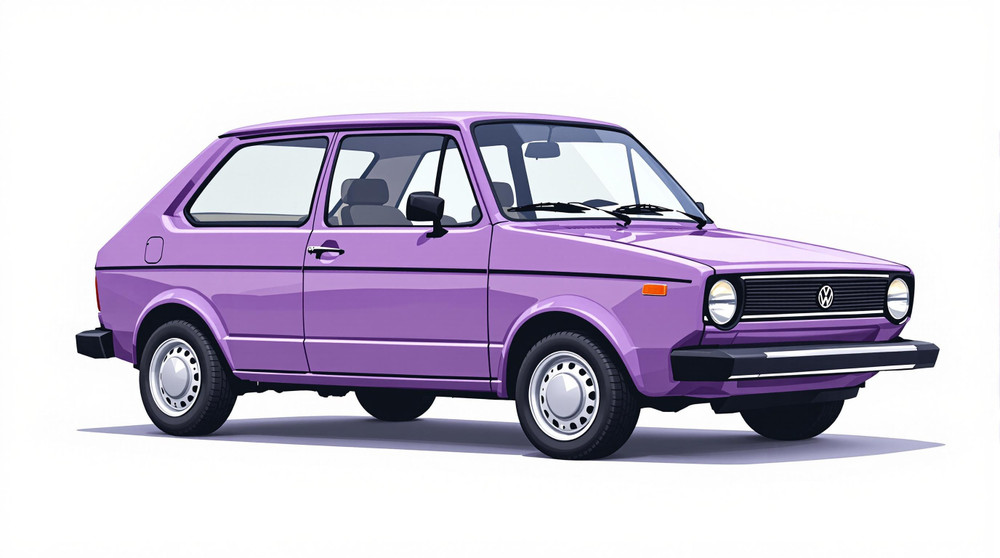Image of 1979 Volkswagen Type 2, Note: These illustrations use artistic license and may differ from actual historical models.
Performance Metrics
Fundamental Metrics
Emotional Appeal
MMP Rating
| Engine Specifications | |
|---|---|
| Engine: | Air-cooled 2.0L flat-four engine |
| Displacement: | 1970cc |
| Horsepower: | 67-70 hp |
| Torque: | 101 lb-ft |
| Compression Ratio: | 7.3:1 |
| Ignition System: | Electronic ignition |
| Cooling System: | Air-cooled |
| Performance Specifications | |
| 0-60 Time: | 20 seconds |
| 1/4 Mile Time: | Not available |
| Top Speed: | 80 mph |
| Transmission and Drive | |
| Drive Type: | Rear-wheel drive |
| Transmission Type: | 4-speed manual |
| Fuel and Efficiency | |
| Fuel System Type: | Fuel injection |
| MPG: | 17-20 mpg |
| Dimensions and Brakes | |
| Brakes: | Front disc, rear drum |
| Wheelbase: | 94.5 inches |
| Weight: | 3000 lbs |
Note: Specifications for classic cars are given to the best of our ability, considering the limited and variant data available.
1979 Volkswagen Type 2: A Timeless Icon of Freedom and Adventure
The open road beckons with the promise of adventure, and few vehicles capture that spirit quite like the 1979 Volkswagen Type 2. Known affectionately as the VW Bus or Microbus, this emblematic road-tripper emerged from the post-war era as a symbol of counterculture and freedom. Born from the vision of Dutch Volkswagen importer Ben Pon and crafted by the hands of German engineering, the Type 2's unique design and versatility made it an instant classic. Its historical tapestry is woven with tales of cross-country journeys, serving as the backdrop for music festivals and becoming a canvas for peace signs and vibrant murals.
Design and Innovation
The 1979 VW Type 2's exterior styling is instantly recognizable with its boxy silhouette, rounded edges, and split front windshield. The vehicle's charm lies in its simplicity and functionality, with sliding doors that reveal a spacious interior capable of seating up to seven people. The quality of materials inside is utilitarian yet durable, designed to withstand the wear and tear of both daily commutes and long-distance treks. Technologically, it boasted advancements like electronic fuel injection for its air-cooled engines—a novelty at the time. Color options ranged from muted earth tones to bright hues, reflecting the era's penchant for self-expression. The most iconic body style remains the Kombi or Campmobile, outfitted with beds, a pop-up roof, and even a kitchenette for those who embraced nomadic living. These models epitomized the vehicle's innovative spirit by transforming from a people carrier to a mobile home.
Historical Significance
The 1979 VW Type 2 didn't just transport people; it carried ideas. It was a vessel for change during tumultuous times, often associated with social movements and the quest for freedom. Its design broke away from traditional automotive aesthetics, challenging norms and influencing future generations of vans and minibuses. The Type 2's legacy is evident in today's market where versatility and personalization in vehicles are more sought after than ever.
Performance and Handling
With a modest top speed that hovers around 80 mph and an unhurried acceleration from 0-60 mph in about 20 seconds, performance was not the Type 2's forte. However, its rear-mounted engine provided a low center of gravity that contributed to stable handling. The driving experience was intimate; drivers felt connected to both machine and environment through responsive steering and the distinctive hum of its flat-four engine. On winding roads or bumpy terrains, the Type 2 managed with poise, offering a ride quality that prioritized comfort over speed.
Ownership Experience
The VW Bus served various roles: daily driver, show car, surfer's companion, or cross-country voyager. Its maintenance was straightforward enough for DIY enthusiasts, while reliability remained high if properly cared for. Parts were—and still are—readily available due to the vehicle's popularity.
Fun Facts
This iconic bus has seen its share of limelight with rare editions like the Sunroof Deluxe or 'Samba' commanding attention. Celebrity ownerships by figures like Jerry Garcia only added to its allure. While not known for breaking speed records, it set benchmarks in sales with millions produced worldwide. Criticisms often centered on its modest power output but did little to dampen its popularity.
Collector's Information
Today's collectors cherish the 1979 VW Type 2 for its nostalgia factor and cultural significance. While exact production numbers are elusive due to global manufacturing, it’s estimated that tens of thousands were produced in that year alone. Values range significantly based on condition and originality; well-preserved models can fetch anywhere from $20,000 to over $100,000 at auction. The market trend shows appreciation in value as these buses become rarer and more coveted.
Conclusion
The 1979 Volkswagen Type 2 stands as more than just a vehicle; it is a cultural artifact that encapsulates an era defined by exploration and expression. Its design simplicity, historical significance, and enduring charm continue to captivate enthusiasts around the world. Whether parked at a local car show or navigating scenic byways, this VW Bus remains an enduring symbol of adventure on wheels.
1979 Volkswagen Type 2 Catalog of Parts
 1979 Volkswagen TYPE 2 Gravel Shields. Molded flat without metal backing plates-FS 40Gravel Shields. Molded flat without metal backing plates. Apply with contact cement. 7-5/8" long X 5-5/8" wide at top. Pair
1979 Volkswagen TYPE 2 Gravel Shields. Molded flat without metal backing plates-FS 40Gravel Shields. Molded flat without metal backing plates. Apply with contact cement. 7-5/8" long X 5-5/8" wide at top. PairWhy Choose Metro?
For over 100 years, Metro Moulded Parts has been the pinnacle of quality in classic car restoration parts. Our commitment to precision and authenticity in every component ensures a perfect fit and an OEM-level appearance.
- Expert Craftsmanship & Quality: Each part is a testament to our dedication to reliability and perfection, crafted from original designs and thoroughly tested.
- Advanced Technology: We use cutting-edge techniques to create flawless, long-lasting parts that surpass others in performance.
- SuperSoft Sponge – The Ultimate Door Seal: Not only are our door seals 30% softer than competitors', but they're also guaranteed to never leak. They effectively reduce wind and road noise, enhancing your classic car's comfort and driving experience.
- Proudly American: Our parts are a product of American craftsmanship, made in the USA with a spirit of excellence and heritage.
- Unrivaled Warranty: We back our products with a 30-year industry-leading warranty, a testament to our confidence in their quality.
Join us in preserving the legacy of classic cars with parts that are crafted for perfection, not just made.

